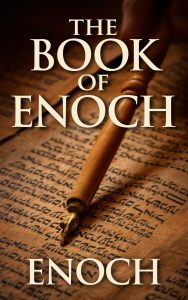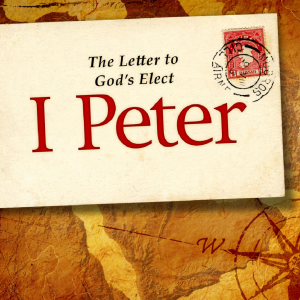
Shownotes
Wisdom-Trek / Creating a Legacy
Welcome to Day 1071 of our Wisdom-Trek, and thank you for joining me.
I am Guthrie Chamberlain, Your Guide to Wisdom
Jesus Is God – According to Peter, Jude, & Enoch – Wisdom Wednesday

Wisdom – the final frontier to true knowledge. Welcome to Wisdom-Trek where our mission is to create a legacy of wisdom, to seek out discernment and insights, and to boldly grow where few have chosen to grow before.
Hello, my friend, I am Guthrie Chamberlain, your captain on our journey to increase wisdom and create a living legacy. Thank you for joining us today as we explore wisdom on our 2nd millennium of podcasts. This is Day 1071 of our trek, and it is Wisdom Wednesday.
Creating a Biblical Worldview is important to have a proper perspective on today’s current events. To establish a Biblical Worldview, you must also have a proper understanding of God’s word. Especially in our western cultures, we do not fully understand the Scriptures from the mindset and culture of the authors. In order to help us all have a better understanding of some of the more obscure passages in God’s word, we are investing Wisdom Wednesday reviewing a series of essays from one of today’s most prominent Hebrew Scholars Dr. Micheal S. Heiser. He has compiled these essays into a book titled I Dare You Not to Bore Me with the Bible.
The question I will ask as we explore today is, “Did Enoch know that Jesus was the incarnate God?” In today’s essay, we will explore passages that cover…
Jesus Is God – According to Peter, Jude, & Enoch

The epistles of Peter and Jude are often overlooked in preaching and Bible study. Not only are they nestled among the more popular letters of Paul and the book of Revelation, but portions of these epistles sound odd to our modern sensibilities. That wasn’t the case in the first century. We can better grasp the meaning of these letters if we understand what they have in common with influential ancient Jewish and Christian writings that were circulating at the time. One of those literary works is known to us today as l Enoch, a book Peter and Jude draw upon in their letters. Jews and Christians of antiquity considered books such as l Enoch important resources for understanding biblical books and their theology. Peter and Jude were no exception. For example, Jude 14-15 draws directly from 1 Enoch.
|
1 Enoch 1:9 |
Jude 14-15 |
| Behold, he comes with the myriads of his holy ones, to execute judgment on all, and to destroy all the wicked, and to convict all flesh for all the wicked deeds that they have done, and the proud and hard words that wicked sinners spoke against him. | Enoch, who lived in the seventh generation after Adam, prophesied about these people. He said, “Listen! The Lord is coming with countless thousands of his holy ones to execute judgment on the people of the world. He will convict every person of all the ungodly things they have done and for all the insults that ungodly sinners have spoken against him.” |

All of the ideas found in 1 Enoch 1:9 can also be found in three Old Testament passages: Jeremiah [25:30]-31, Isaiah [66:15]-16, and Zechariah 14:5. Rather than quote all three, Jude quotes the verse in 1 Enoch that combines them. But the real point of interest isn’t Jude’s succinctness; it’s his interpretation of 1 Enoch, as well as the Old Testament. In 1 Enoch 1:9 it is the “Great Holy One” (God) who is “coming with myriads of holy ones from Sinai (1 Enoch 1:4) and who has promised to come to earth in the day of the Lord for final judgment. For Jude as well as Mark and Paul (compare Mark [8:38] and 1 Thessalonians [3:13]), this event is transformed into the return of Jesus Christ (Jude 17-18). By naming Jesus as the one coming with the holy ones, Jude equates Jesus with the God of Israel. Jude’s citation of 1 Enoch is his efficient strategy for declaring that Jesus is God.
Peter also draws freely upon 1 Enoch; his first letter contains roughly 20 allusions to 1 Enoch 108. First Peter 1:7-18 illustrates how Peter uses 1 Enoch to teach and encourage his audience.
| 1 Enoch 108:6-10 | 1 Peter 1:6-12 |
| Here are thrown the spirits of the sinners and blasphemers and those who do evil and those who alter everything that the Lord has said by the mouth of the prophets (about) the things that will be done. For there are books and records about them in heaven above, so that the angels may read them and know what will happen to the sinners and the spirits of the humble, and those who afflicted their bodies,… those who love God., and do not love gold and silver and all the good things that are in the world, but gave their bodies to torment: … The Lord tested them much, and their spirits were found pure, so that they might bless his name. | So be truly glad. There is wonderful joy ahead, even though you must endure many trials for a little while. These trials will show that your faith is genuine. It is being tested as fire tests and purifies gold—though your faith is far more precious than mere gold. So when your faith remains strong through many trials, it will bring you much praise and glory and honor on the day when Jesus Christ is revealed to the whole world.
You love him even though you have never seen him. Though you do not see him now, you trust him; and you rejoice with a glorious, inexpressible joy. The reward for trusting him will be the salvation of your souls. This salvation was something even the prophets wanted to know more about when they prophesied about this gracious salvation prepared for you. They wondered what time or situation the Spirit of Christ within them was talking about when he told them in advance about Christ’s suffering and his great glory afterward. They were told that their messages were not for themselves, but for you. And now this Good News has been announced to you by those who preached in the power of the Holy Spirit sent from heaven. It is all so wonderful that even the angels are eagerly watching these things happen.
|

These similarities show how both l Enoch and l Peter encourage the faithful to persevere. Their love for God is an earthly drama watched by angels. But like Jude, Peter turns the object of this love in l Enoch—the God of Israel—to Jesus. Peter is encouraging those of Jewish heritage to continue following Christ.
These parallels show us that both Peter and Jude want to strengthen the resolve of their readers to follow Jesus, the God of Israel revealed for them. By reading texts such as l Enoch, we can better understand the cultural background of the Bible. We can also see how the biblical writers engaged texts that shape their theology.
QUICKBIT: 1 Enoch is placed in a collection of ancient Jewish and Christian writings known as the “pseudepigrapha.” This term is often misunderstood to mean “false writings,” but it actually describes literature that bears the name of a biblical figure who did not write the book named after him. (Think of the term “pseudonym,” meaning “pen name.”)
That will conclude our essay for this week. Next Wisdom Wednesday we will continue in the New Testament as we look at Dr. Heiser’s next essay titled “When Angels Do Time.” I believe you will find this another interesting topic to consider as we build our Biblical worldview.
Tomorrow we will continue with our 3-minute humor nugget that will provide you with a bit of cheer and help you to lighten up and live a rich and satisfying life. So encourage your friends and family to join us and then come along with us tomorrow for another day of our Wisdom-Trek, Creating a Legacy.

If you would like to listen to any of the past 1063 daily treks or read the daily journal, they are available at Wisdom-Trek.com. I encourage you to subscribe to Wisdom-Trek on your favorite podcast player so each day will be downloaded to you automatically.
Thank you for allowing me to be your guide, mentor, and most importantly, your friend as I serve you through the Wisdom-Trek podcast and journal.
As we take this trek together, let us always:
- Live Abundantly (Fully)
- Love Unconditionally
- Listen Intentionally
- Learn Continuously
- Lend to others Generously
- Lead with Integrity
- Leave a Living Legacy Each Day
I am Guthrie Chamberlain reminding you to Keep Moving Forward, Enjoy Your Journey, and Create a Great Day Everyday! See you tomorrow!